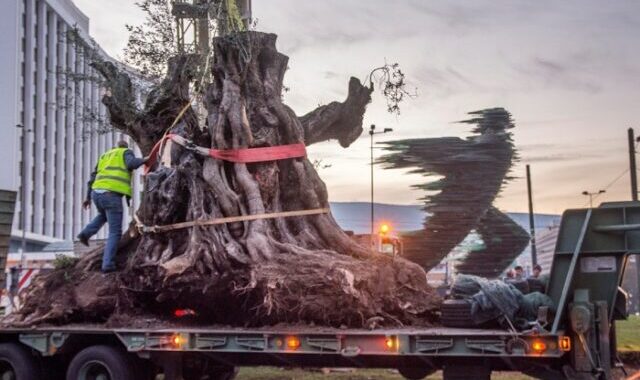
No matter how far back you look at Greek history, the olive tree will always be there.
It is seen as a symbol of peace, fertility, health, faith, and strength, with the branches commonly used as decoration at both Greek weddings and baptisms, symbolising prosperity.
Since 2014, ERGOSE (a subsidiary company of TRAINOSE) in cooperation with local authorities, have been transferring the trees from areas expropriated for railway projects to other sites.
So far, more than 500 olive trees, some of which are centuries-old, have been saved.
They have been unrooted, carefully transferred, and re-planted in other areas of the country, so they can continue to provide oxygen and limit carbon in the atmosphere.
Following the devastating 2018 Attica wildfires, 60 olive trees were transplanted in the municipalities of Marathon and Rafina, along the Marathon race route, to restore the landscape.
More recently, a four centuries-old olive tree in Patras was moved to a new location, along with four other younger trees.
Mayor of Petroupoli (a western suburb of Athens), Stefanos Gabriel Vlachos, considers the rescue 'olive operation' a great gift for the city's residents.
"We are proud that this olive tree, which is 400-500 years old, is now on our soil in Petroupoli. The locals have welcomed with enthusiasm our initiative, because there is no person in Greece whose life is not linked to the olive tree and its fruits," he told Xinhua.
"For us, the olive is a sacred tree. It is an ancient symbol of culture and fertility. It was the symbol of Goddess Athena (of wisdom in ancient Greek mythology) .... It is the symbol of our country," he said.
"In (ancient Greek poet) Homer's work, the olive was the wood with which Odysseus blinded Polyphemus (the one-eyed giant son of Poseidon and Thoosa in Greek mythology). Hercules' bat was also made of olive wood. The olive tree is inextricably linked with Greece's culture."
